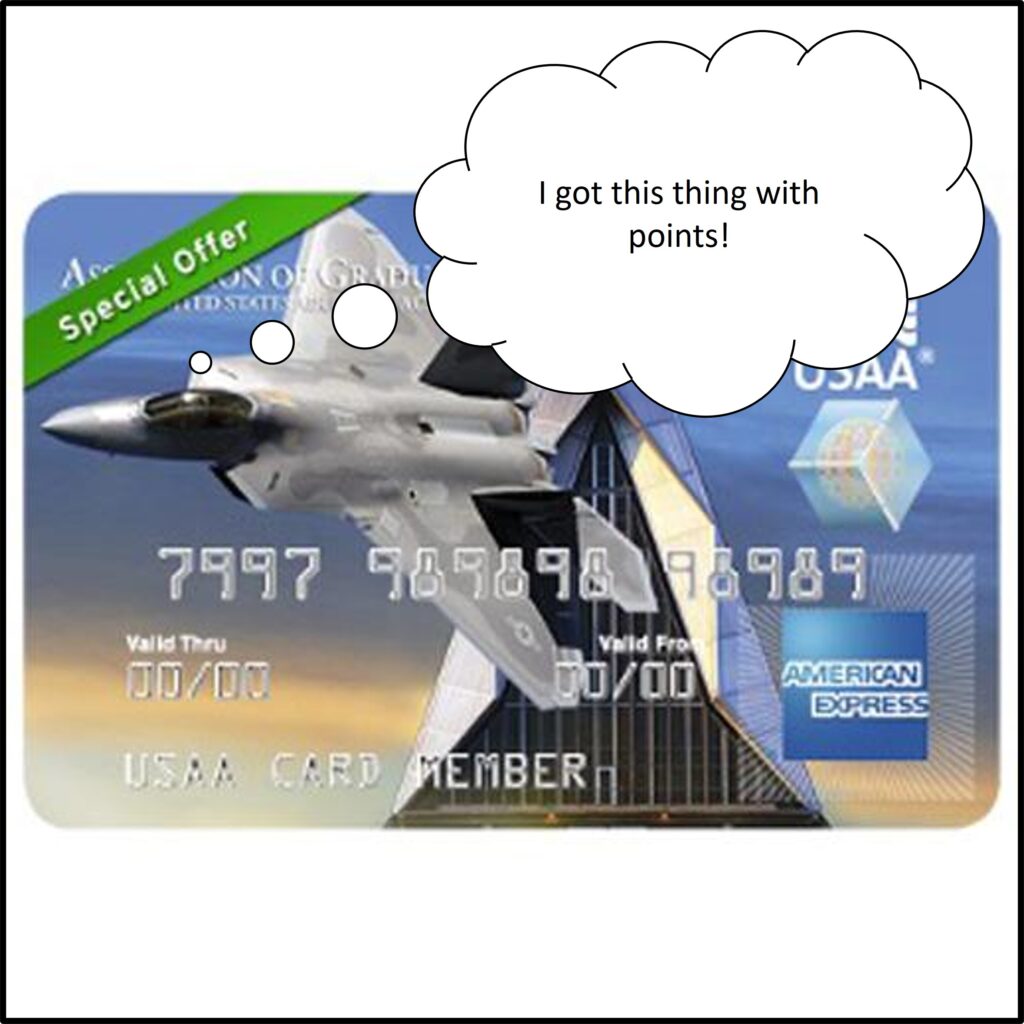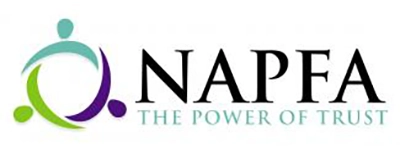The Premium or the Pain
It’s hard to think of a product more heavily marketed than credit cards. I don’t know that banks send them to as many dead people as they used to. It’s been a while since my dog received an offer. But myself, my wife, and my adult daughter certainly received enough offers to keep our self-esteem puffed.
Credit cards have a lot of upsides. They offer airline miles, hotel points, car rental points, cash, and of course points for pretty much anything else you might have an affinity for: high end makeup, clothing stores, and Star Trek. It wouldn’t surprise me if they offered them for people with a serious Fabergé egg habit. I’m sure at some point there will be credit cards to help you get points to buy used, confiscated oligarch yachts. Disappointingly, I’ve never seen one for my local brewery or distillery.
Most credit cards are still free, meaning that you are the product, or at least free while you’re still on active duty. (Yes, Amex and Chase will eventually figure out that you retired ☹) Even those with a fee, offer quite a few perks if you can use them without drastically changing your habit patterns and consumption. What’s not to like?
The Pain
A gorilla package worth of studies demonstrates beyond doubt that we feel pain in specific areas of our brains when we pay for items with cash. When you hand over a Benjamin or a Jackson, you know full well you’ll never see that one again. When you swipe plastic, it just doesn’t feel that bad. It’s kind of a stupid parlor trick, but our brains feel like there’s an endless supply of plastic swiping. Of course, we know that we’ll eventually part with some of our money because of this plastic swiping, but we don’t experience pain when we swipe.
Before the modern age, McDonalds only accepted cash. In the early 2000’s, the burger-slinging clown decided to experiment with credit and debit cards. They found that patrons spent as much as 40% more per transaction when swiping plastic. Card readers found their way into golden arches faster than a 4-Ship of Raptors cleans up the leading edge. Profits for Mickey D’s? Let’s just say they didn’t go down.
We know we’ll have to settle up at the end of the month. Sometimes that settling up hurts a bit, “How did we spend so much this month?” Other times it seems reasonable, “Whew, there’s enough left in the checking account to bet on the Crud match this Friday.”
If you’re one of the weirdos out there that pays for big ticket items like cars in cash, you probably notice another phenomenon—if there’s a chance to keep some of the cash, then you approach the purchase differently. Getting talked into upgrades isn’t as satisfying when you know it’ll lighten your wallet, while restraining a bit, “Is the 69” TV really any worse than the 75” version?” might even feel good.
Unfortunately, we’re lazy mammals and we’ll take the path of least resistance as often as not. Thus, we skip the pain and go for the premium.
The Premium
The premium effect means that we rationalize spending urges that we might not otherwise indulge because we know we earn premiums for doing so. Point, nights, miles, cash, toaster ovens… the banks know we like to get a little ‘sum-sum with our purchase.
Amazon Prime gives us “free” shipping to soften the sting of buying online. The credit card perks take the offer one step further— “No need to feel a sting, in fact, give yourself a pat on the back for earning miles/points/cash back by buying the bulk-size mayonnaise!”
The last time I checked my budget, I could not afford a consumer psychology department to help me hack my spending habits. The last time I estimated the banks’ budgets, it did in fact appear that they could afford effective consumer psychology departments to hack my spending habits. They know full well that we’ll enjoy the Premium because it helps us skip the Pain.
The Realities
While it’s good to know that we naturally dislike the feeling of parting with non-renewable resources like cash, and equally helpful to know that we’re susceptible to being lured into over-spending, we have to face some realities too.
You’re probably going to have one or more credit cards. Uncle Sam probably makes you have one for official travel. It’s the easiest way to start a credit history to enable apartment applications and other early adulting activities. You generally need one for certain transactions such as rental cars.
Many people max-perform the credit card game, slaying the companies by taking hordes of miles and points to enjoy fantastic vacations. Many other people think they will do this and have Castanza-sized wallets full of cards.
Debit cards aren’t necessarily better. Fraud protection is scant with debit cards/checking accounts compared to credit cards. We’re still swiping plastic, so even though we might feel a little closer to the loss of our money resource, we get to delay the pain a bit.
Credit cards can muddy the waters on how much we really spend. It’s common for families to spread spending across various cards and checking accounts (plus PayPal, Venmo, etc.). Even using an aggregator like Mint.com, automatic transaction categorization is often more miss than hit. Realistically, your family probably has several hundred transactions per month, so almost any level of manual categorization is a non-starter. Want to know how much you really spend on groceries? Good luck!
Card spending can frustrate cashflow discussions. Not every couple meets weekly to debrief last week’s spending and brief this week’s purchase plans… When each spouse has one or more cards/accounts to spend from, it can be difficult to find, let alone raise the issue, “Hey hon, I noticed that we spent $3,369.79 at Amazon, Target, and Walmart this month…”
The Other Pains
Most of us know that interest charges on credit cards make the feels on Index Universal Life Insurance look like pocket change and since we usually pay them off, then we probably don’t pay a lot of interest.
Some families view credit cards as an emergency fund. This is a gusty move Mav, as the time to run up bills that could amplify with crippling interest might not be when the emergency is a job loss, furlough, or other cash-draining event. What’s more, when the economy gets shaky, banks like to reign in risk and often cancel cards or lower credit limits.
The Other Premiums
Credit cards offer much better fraud and identity theft protection than bank accounts and debit cards. Some cards offer primary car rental insurance so that you don’t have to file a claim with your insurance company or pay out of pocket. Credit cards offer convenience so that you can swipe for a five-figure purchase while taking a little time to finish moving money between bank accounts to pay the bill. Credit cards allow you to pay off your balance as often as you like so there’s no need to wait for shock and awe at the end of the month.
Cleared to Rejoin
Our society is no more going to give up political polarity than it’s going to give up using credit cards. Credit cards are convenient, but their issuers have spent a lot more time thinking about how to get us hooked on them than we can possibly spend trying to outwit them. Once we’re hooked, our risk of overspending, high fees, and excessive interest go through the roof.
On the other hand, cash is both a pain to use in the 21st century and causes real pain when we use it. The disincentives for cash are strong and growing.
If we’re going to win the battle of Premium vs Pain we need to remember:
- Cards are convenient, but they’ll keep us overspent, buried in unusable data, and generally separated from our money (physically and emotionally).
- Cash is a hassle, but it keeps us mindful of a finite resource.
- The default is that banks win unless stay in the fight to balance the Premium and the Pain.
Fight’s On!
Winged Wealth Management and Financial Planning LLC (WWMFP) is a registered investment advisor offering advisory services in the State of Florida and in other jurisdictions where exempted. Registration does not imply a certain level of skill or training.
This communication is for informational purposes only and is not intended as tax, accounting or legal advice, as an offer or solicitation of an offer to buy or sell, or as an endorsement of any company, security, fund, or other securities or non-securities offering. This communication should not be relied upon as the sole factor in an investment making decision.
Past performance is no indication of future results. Investment in securities involves significant risk and has the potential for partial or complete loss of funds invested. It should not be assumed that any recommendations made will be profitable or equal the performance noted in this publication.
The information herein is provided “AS IS” and without warranties of any kind either express or implied. To the fullest extent permissible pursuant to applicable laws, Winged Wealth Management and Financial Planning (referred to as “WWMFP”) disclaims all warranties, express or implied, including, but not limited to, implied warranties of merchantability, non-infringement, and suitability for a particular purpose.
All opinions and estimates constitute WWMFP’s judgement as of the date of this communication and are subject to change without notice. WWMFP does not warrant that the information will be free from error. The information should not be relied upon for purposes of transacting securities or other investments. Your use of the information is at your sole risk. Under no circumstances shall WWMFP be liable for any direct, indirect, special or consequential damages that result from the use of, or the inability to use, the information provided herein, even if WWMFP or a WWMFP authorized representative has been advised of the possibility of such damages. Information contained herein should not be considered a solicitation to buy, an offer to sell, or a recommendation of any security in any jurisdiction where such offer, solicitation, or recommendation would be unlawful or unauthorized.






